Tattered Tapestries: Weaving Trust Through the Chaos
[Reprinted from Jesus, the Gentle Parent: Gentle Christian Parenting by L.R.Knost. Two Thousand Kisses a Day: Gentle Parenting Through the Ages and Stages; Whispers Through Time: Communication Through the Ages and Stages of Childhood; and The Gentle Parent: Positive, Practical, Effective Discipline by L.R.Knost also available on Amazon and through other major retailers.]
“For I know the plans I have for you,” declares the Lord, “plans to prosper you and not to harm you, plans to give you hope and a future.”
Jeremiah 29:11~~~~~~~
 The old preacher’s slightly shaky voice and once-hearty arthritic hands spoke of life and experience and hard-won wisdom as he held up a dusty tapestry with the back facing us. The tangle of threads that seemed to go nowhere and the snarl of multicolored knots gave no hint of the picture on the other side. “This is what we see,” he said. Then he turned the tapestry around to display the intricate, painstakingly crafted, exquisite picture on the front side. “And this is what God is doing.” He looked around the room, a kind and gentle understanding in his age-dimmed gaze. “Faith is trusting that your Father’s hands are carefully weaving a beautiful life’s story, even when all you can see is chaos.”
The old preacher’s slightly shaky voice and once-hearty arthritic hands spoke of life and experience and hard-won wisdom as he held up a dusty tapestry with the back facing us. The tangle of threads that seemed to go nowhere and the snarl of multicolored knots gave no hint of the picture on the other side. “This is what we see,” he said. Then he turned the tapestry around to display the intricate, painstakingly crafted, exquisite picture on the front side. “And this is what God is doing.” He looked around the room, a kind and gentle understanding in his age-dimmed gaze. “Faith is trusting that your Father’s hands are carefully weaving a beautiful life’s story, even when all you can see is chaos.”
I remember this story often when life feels overwhelming, when big things like layoffs and sicknesses hit, and when small things like cranky toddlers, piles of laundry, and broken refrigerators annoy. What feels to me like an endless cycle of dishes and diapers, punctuated by the odd disaster, must look like brilliant threads of golden perseverance, scarlet sacrifice, and soft blue-grey shades of faith, all woven tenderly into my life’s tapestry by my Father’s skillful hands.
I imagine life feels this way to my children, as well. They may not see the picture I am trying to weave as I teach and guide and nourish and encourage them to grow into the beautiful humans they were created to be.
They may not understand why they’re gently redirected when they try to crawl up the stairs or why bugs don’t make a good afternoon snack. They may not be able to fathom why their new dragonfly ‘pet’ can’t live in the house or why they can’t hide in “the best hiding place EVER” in a hot car on a steamy Florida afternoon. They may not be entirely thrilled with the agreement on no laptops in their rooms or no cell phone in their tween years, and they may not fully get why the mall is not a safe hangout spot and why periodic texts to check in when out with friends are part of our family dynamic in their teen years.
As my children grow old enough to participate in the decision making, though, we share our thoughts about these things, discuss them together, and come up with mutually agreed upon boundaries. While these things may seem like meaningless threads or even unnecessary knots and tangles in their lives, the trust that we share helps them to accept and cooperate with what they may not fully understand, knowing that I have a purpose for each of these things even if they can’t see it.
It is that trust, that faith in my motives, my wisdom, my love, that makes gentle parenting possible. I don’t have to ‘lay down the law’ or enforce ‘rules’ with punishments or ‘control’ my children with threats or intimidation because they know that I have their best interests at heart and that I will always, always listen to their concerns, even if I can’t change things or give them what they want.
I start building that trust from the moment my children are born and continue building it throughout their childhood. I respond quickly, consistently, and with empathy to their cries or whines or troubles whether they are eight days, eight years, or eighteen years old. I meet their needs as fully as I am able, whether those needs are a clean diaper, a full belly, a listening ear, or a warm hug. I try to always respond gently and thoughtfully to their behaviors, whether they are having a meltdown, whining, tattling, questioning, or even challenging me.
And, perhaps most importantly, I’m honest about my own imperfections. I’m willing to apologize when I make one of my many human parenting mistakes, and I don’t expect perfection from my equally human children.
Motherhood is very simple to me. It’s a gift to me, but it’s not about me. I’m the one who chose to bring these little people into the world, so the pervading belief in our modern culture that somehow they have the responsibility to fit into my life, and work around my schedule, and not disrupt my pursuits completely mystifies me. They aren’t interlopers; they are guests, invited guests. And how do we treat our guests? Do we ignore their needs or make incomprehensible demands on them or ridicule, name-call, and hit them when they misstep? Of course not. We welcome our guests with special dinners, make accommodations for their needs, and forgive their lack of knowledge of our ways. And our children deserve no less. In fact, they deserve much more.
In our home, when our newest little invited guests arrive, they are welcomed with open arms that are always available, day or night. They are provided nature’s best provision for their nutritional needs. And they are gently guided by example and lovingly encouraged to become a part of a healthy family dynamic. In short, when I invite these little people into my life, it stops being my life, and it becomes our lives.
Parenthood is, very simply, a beautiful sacrifice that mothers and fathers willingly and lovingly live for their  children, day after day, night after night, as a reflection of the sacrifice Jesus made for his children on the Cross. Parenthood is a lovely, lively retelling of the Cross played out in the arms of mamas and daddies, again and again and again.
children, day after day, night after night, as a reflection of the sacrifice Jesus made for his children on the Cross. Parenthood is a lovely, lively retelling of the Cross played out in the arms of mamas and daddies, again and again and again.
Consider the young mother who gives up night after night of sleep to soothe her little one’s cries, or the middle aged man who still gets up before dawn each day to provide for his family, or the elderly parents who give up the peace of their golden years to welcome the child of their youth back into their home when life hits hard. This laying down of self, this giving up of comforts and rights and dreams, these are losses, sacrifices, even hardships, but they are lovely, beautiful beyond belief. Their loveliness lies in the soft warmth of a sleepy baby with a full belly and a trusting heart. Their beauty lies in the joyful chaos of a messy, noisy, welcoming family to come home to each night. Their beauty lies in the spark of hope in the tear-filled eyes of a weary adult whose life has turned dark, but who finds that home is still a safe refuge.
My children, all six of them, are precious gifts straight from God’s heart to my home. I have had other precious gifts, babies whom God gave for a time to fill my womb, but who weren’t meant to fill my arms, and one He gave to fill my arms for a just a moment in time, but who wasn’t meant to stay. My stillborn son, Sammy’s, birthday is in just a few weeks. While he’s always in my heart, as his birthday approaches my heart tightens in my chest a bit more each day until the ache becomes almost unbearable, and then finally the day comes and goes and I can breathe again.
These times always make me wonder how tragedy must look from Heaven’s side. I wonder about my Sammy, and I wonder about my other lost babies, gone before they even had birthdays. What colors did they add to my story? What eternal beauty did they bring that would have made my tapestry incomplete if they had not come and gone, so heartbreakingly briefly, into my life? While I feel holes in my heart, one for each much-wanted child, and an aching cavern of loss for my Sammy, would my life have been complete without them?
I can’t answer these questions. I won’t even try. But I imagine that is where faith stretches its silken blue-grey threads across my story like the fragile gossamer wings of a butterfly. Each one of them brought with them the unique knowledge of how breathtakingly exquisite every living, breathing child is and how priceless and fragile and brief life itself can be. I do not take this knowledge lightly. I have learned to treasure the moments of life with my children. I’ve learned that it’s not about me; it’s about us. And I’ve learned that sacrifice lights up the dark places in the world, making it a more beautiful place for all of us to live.
Life is messy. No one has all the answers, at least not earth-side. But we can all trust that this sometimes bewildering, sometimes joyful, sometimes flat-out painful chaos called life has meaning and purpose and beauty beyond the scope of human sight. And as we carefully and gently weave the strands of our children’s days into a beautiful childhood, we can trust that our Father is thoughtfully and tenderly doing the same for us.
“Now we see through a glass darkly; then we shall see clearly, face to face. Now I know in part, then I shall know fully, even as I am fully known.” 1 Corinthians 13:12
Related posts:
Fear Doesn’t Lead to Faith: Becoming Your Child’s Safe Place
Spare the Rod: The Heart of the Matter
Practical, Gentle, Effective Discipline
Bridge Over Troubled Waters~Parenting a ‘Problem’ Child
200 Ways to Bless Your Children with a Happy Childhood
Jesus, the Gentle Parent: Gentle Christian Parenting
 Award-winnning author, L.R.Knost, is the founder and director of the children's rights advocacy and family consulting group, Little Hearts/Gentle Parenting Resources, and Editor-in-Chief of Holistic Parenting Magazine. Books by L.R.Knost include Whispers Through Time: Communication Through the Ages and Stages of Childhood ; Two Thousand Kisses a Day: Gentle Parenting Through the Ages and Stages ; The Gentle Parent: Positive, Practical, Effective Discipline ; and Jesus, the Gentle Parent: Gentle Christian Parenting the first four books in the Little Hearts Handbook gentle parenting series, and children’s picture books Petey’s Listening Ears and the soon-to-be-released Grumpykins series.
Award-winnning author, L.R.Knost, is the founder and director of the children's rights advocacy and family consulting group, Little Hearts/Gentle Parenting Resources, and Editor-in-Chief of Holistic Parenting Magazine. Books by L.R.Knost include Whispers Through Time: Communication Through the Ages and Stages of Childhood ; Two Thousand Kisses a Day: Gentle Parenting Through the Ages and Stages ; The Gentle Parent: Positive, Practical, Effective Discipline ; and Jesus, the Gentle Parent: Gentle Christian Parenting the first four books in the Little Hearts Handbook gentle parenting series, and children’s picture books Petey’s Listening Ears and the soon-to-be-released Grumpykins series.
Jesus, The Gentle Parent
[Excerpt reprinted from Jesus, the Gentle Parent: Gentle Christian Parenting by L.R.Knost. Two Thousand Kisses a Day: Gentle Parenting Through the Ages and Stages; Whispers Through Time: Communication Through the Ages and Stages of Childhood; and The Gentle Parent: Positive, Practical, Effective Discipline by L.R.Knost also available on Amazon and through other major retailers.]
~~~~~~~~~~~~~~~~~~~~~
Jesus, the Gentle Parent
“…a great and powerful wind tore the mountains apart and shattered the rocks before the Lord,
but the Lord was not in the wind. After the wind there was an earthquake,
but the Lord was not in the earthquake.
After the earthquake came a fire,
but the Lord was not in the fire.
And after the fire came
a gentle whisper…”
1 Kings 19:11-12
God has gone to great lengths, superhuman lengths even, to reach out to his wandering children and call them home, back into the safe shelter of his arms, into the warm welcome of his presence, into the tender delight of his heart.
Throughout the Old Testament, he spoke through prophets, dreams, angels, and even a bush! He revealed his character in his ‘commandments’ (in the original Hebrew text ‘tsawah’ which literally means ‘directions’ or ‘guides’) and in the names he called himself and in his interactions with that lovely, stubborn, chosen nation, Israel.
And, finally, in the New Testament, he just stuck his feet right in the dirt and somehow stuffed his infinite Being  into the skin of a human.
into the skin of a human.
God with us.
GOD. With. Us!
Why in Heaven’s name would he do that? Well, that’s been the subject of dusty tomes and esoteric debates for centuries, but in truth the answer is very simple: God is a father, a daddy who wants to connect with and build a relationship with his children.
In the Old Testament God revealed himself as a father who is Creator, Provider, and Protector. He showed himself to be an involved father, interested in every detail of his children’s lives, from what they ate to how and where and when they worshiped him. And he revealed his purity, his incomprehensible holiness that kept his beloved children hopelessly separated from him and helpless to change that fact. All the rules for cleansing, all the rituals, and all the formulas, only served to highlight the pitiful fallen state of God’s beloved children.
Then, in the New Testament, God stepped in. He stepped out of Heaven, and he stepped into the muck and mire of life among his precious children.
And that ritualistic, external, temporal cleansing? It became relational, internal, and eternal.
Stones once thrown in righteous judgment were laid down in humble mercy. Punishment was replaced with grace as Righteousness Himself stood between sinful man and his dire fate.
And so we have Jesus, God Himself with us in the flesh, God’s heart in a very literal sense laid bare for all the world to see, the perfect Parent to model ourselves after.
We have the Father…not a father, but THE Father…to look to for guidance about how to parent our children.
So, let’s get practical. What does God’s parenting look like, and how can we model ourselves after him?
Well, Jesus raised twelve children, so let’s take a look at how he did it!
Twelve of God’s children, all with different personalities, backgrounds, and talents, became Jesus’ disciples. The word disciple is the root word in discipline, so in a completely literal sense to discipline our children means to disciple them.
So, what characteristics defined Jesus’ discipleship? How did he treat his disciples? Was he harsh? Did he yell? Did he punish them? Clearly, he had the authority to! But since he came to free us from punishment, it really wouldn’t make sense for him to start meting it out, would it?
Was he distant, unresponsive to their needs? Did he make demands, insist on instant obedience, and toss around kingly commands?
No, no, no, and no! Jesus treated his disciples gently, tenderly. He listened. He responded to their needs, answered their questions, spoke their language. Jesus encouraged and guided and taught his disciples.
He drew them close to himself, lived with them, ate with them, travelled with them. Jesus didn’t just say he loved his disciples. He didn’t simply feel love for his disciples. Jesus lived love for his disciples. And he lived that love daily, mercifully, sacrificially.
So, what are the characteristics that defined Jesus’ discipleship?
Gentle. Tender. Responsive. Available.
Listening. Encouraging. Teaching. Guiding.
God, himself, intimately and empathetically connecting with his children.
That is perfect parenting.
 I, however, am NOT a perfect parent. In the time it’s taken me to write this so far, I’ve failed at pretty much every single one of those perfect parenting qualities. I only say that to point out that we aren’t shooting for perfection here.
I, however, am NOT a perfect parent. In the time it’s taken me to write this so far, I’ve failed at pretty much every single one of those perfect parenting qualities. I only say that to point out that we aren’t shooting for perfection here.
If perfection were possible, the Cross wouldn’t have been necessary. (Galatians 2:21)
I have failed and will fail again as a parent. But even my failures have great value because they lead me back to the Cross, time and time again.
My failures remind me to turn to my perfect Parent, God, and trust him with my children. And my failures offer me the opportunity to be transparent with my children, to ask for forgiveness, to show them it’s okay to be human and to make mistakes.
In short, my imperfections are perfect for demonstrating God’s unconditional love.
So, what are some ways we can reflect Christ-like qualities in our never-perfect-but-best-effort parenting?
- Build your relationship. Everything, absolutely everything, in raising children is dependent upon a secure parent/child relationship, and the foundation is trust. We talk all the time in Christian circles about needing to trust God more. Why? What’s so important about trust? Trust is the secure knowledge that we will be cared for, that the person we are dependent on is who they say they are and will do what they say they will do. Without trust, there is no relationship. You build trust in your children starting from day one by responding faithfully and quickly to their needs, day or night, even if their ‘need’ is simply reassurance that you’re there.
- Be there in the moment. This isn’t about quality time or quantity time. This is about actually being with your children when you’re with them. I’m talking about muting the television and making sustained eye contact all the way through the story of how they had the piece of string first and how it was taken by a sibling when they only set it down for a minute and…well, you get the picture. Jesus showed he cared by listening and responding to what was important and relevant to his children. Even when he was sound asleep on the boat, when his children cried out to him in fear, Jesus responded to their needs, soothed his children, and calmed the storm.
- Encourage, don’t discourage. Jesus built up his disciples, giving positive directions, allowing time and opportunity for them to try, helping when they needed it, and forgiving them when they failed. Never, not once, did he lash out at his disciples in anger. He taught them gently and encouragingly, often in stories that related to their daily lives, and he was always available to discuss or clarify or answer questions.
- Practice what you preach. This is foundational, right along with trust. If you don’t live out how you want your children to turn out, you can be pretty much guaranteed they’ll go an entirely different way. Listen to your children if you want them to learn to listen. Respect your children if you want them to learn respect. Model compassion, kindness, honesty, forgiveness, and a grateful spirit if you want your children to grow into adults with those character traits. Jesus certainly lived out every one of those qualities for his children.
- Don’t make excuses. If you fail (and you will) apologize. Nothing penetrates hurt more deeply and with more healing power than an honest, open apology.
- Give grace. The unconditional love of God is beyond human comprehension. Even ‘veteran’ Christians resort to trying to earn God’s grace when they’ve already been given it freely. We all fall into that trap, time and time again, because we just can’t wrap our human brains around something as awesomely simple as unconditional love. We think it MUST be more complicated, and we end up complicating it by trying to pay for something that is free! So, help your children while they’re looking to you, their earthly parent, for an example of how their Heavenly Parent operates. Give them grace. Guide them gently. Forgive them when they fall, and get down on their level to help them back up again.
- Enjoy your blessings. Your children are a reward, a blessing, a gift straight from the heart of your Father to you, his precious child. He wants you to feel what he feels, to experience him in a unique way through parenting your children in the way that he parents you. He wants you to delight in your children so you’ll understand how he delights in you. He wants you to feel the depth of concern he feels when you stray into danger, the heights of joy he feels when you run trustingly into his arms, the pangs of compassion he feels when you are hurting or scared. Take the time to enjoy your children, and you will find yourself closer to the heart of your Father than you can possibly imagine.
“Whoever receives one of these little children in My name receives Me;
and whoever receives Me, receives not Me but Him who sent Me.”
Mark 9:37
Related links:
Stealing God’s Gift: Free Will is a Gift to be Nurtured, Not a Curse to be Broken
Spare the Rod: The Heart of the Matter
Did Jesus Have a Temper Tantrum?
Jesus, the Gentle Parent: Gentle Christian Parenting
Tattered Tapestries: Weaving Trust Through the Chaos
Fear Doesn’t Lead to Faith: Becoming Your Child’s Safe Place
Where Did You Learn Love, Child?
Practical, Gentle, Effective Discipline
 Award-winnning author, L.R.Knost, is the founder and director of the children's rights advocacy and family consulting group, Little Hearts/Gentle Parenting Resources, and Editor-in-Chief of Holistic Parenting Magazine. Books by L.R.Knost include Whispers Through Time: Communication Through the Ages and Stages of Childhood ; Two Thousand Kisses a Day: Gentle Parenting Through the Ages and Stages ; The Gentle Parent: Positive, Practical, Effective Discipline ; and Jesus, the Gentle Parent: Gentle Christian Parenting the first four books in the Little Hearts Handbook gentle parenting series, and children’s picture books Petey’s Listening Ears and the soon-to-be-released Grumpykins series.
Award-winnning author, L.R.Knost, is the founder and director of the children's rights advocacy and family consulting group, Little Hearts/Gentle Parenting Resources, and Editor-in-Chief of Holistic Parenting Magazine. Books by L.R.Knost include Whispers Through Time: Communication Through the Ages and Stages of Childhood ; Two Thousand Kisses a Day: Gentle Parenting Through the Ages and Stages ; The Gentle Parent: Positive, Practical, Effective Discipline ; and Jesus, the Gentle Parent: Gentle Christian Parenting the first four books in the Little Hearts Handbook gentle parenting series, and children’s picture books Petey’s Listening Ears and the soon-to-be-released Grumpykins series.
Beautiful Minds
I’m thankful for unique learners!
 My SPD/SLD/ADD (Sensory Processing Disorder, Specific Learning Disability-Dyslexia, Visual and Auditory Processing Disorders, Attention Deficit Disorder, etc) sweetie, aka Renaissance Girl, has raised the bar on my homeschooling skills more times than I can count. Her beautiful mind sees the world through a unique lens similar to those of historical icons such as Thomas Edison, Leonardo Da Vinci, Benjamin Franklin, and Albert Einstein. While academics have been a huge challenge for
My SPD/SLD/ADD (Sensory Processing Disorder, Specific Learning Disability-Dyslexia, Visual and Auditory Processing Disorders, Attention Deficit Disorder, etc) sweetie, aka Renaissance Girl, has raised the bar on my homeschooling skills more times than I can count. Her beautiful mind sees the world through a unique lens similar to those of historical icons such as Thomas Edison, Leonardo Da Vinci, Benjamin Franklin, and Albert Einstein. While academics have been a huge challenge for her, the artistic and musical gifts she’s been given are incredible, and her gentle, sensitive soul is a rare and precious treasure. Many years of therapy have yielded the ability to read, and she’s like a butterfly newly emerged from her cocoon. Jane Eyre, Little Women, Anne of Green Gables, all have sent her beautiful mind soaring to different times and places, and all have become intimate, lifelong friends with my sweet girl. I am so blessed to be entrusted with such a unique child to guide and grow and love!
her, the artistic and musical gifts she’s been given are incredible, and her gentle, sensitive soul is a rare and precious treasure. Many years of therapy have yielded the ability to read, and she’s like a butterfly newly emerged from her cocoon. Jane Eyre, Little Women, Anne of Green Gables, all have sent her beautiful mind soaring to different times and places, and all have become intimate, lifelong friends with my sweet girl. I am so blessed to be entrusted with such a unique child to guide and grow and love!
One of my girl’s drawings!

Einstein recognized his unique lens and often commented about it and about how organized education systems didn’t accommodate individuality and creativity. Here is a look into this ‘unique learner’s’ mind in his own words:
Education is what remains after one has forgotten what one has learned in school. Albert Einstein
A man should look for what is, and not for what he thinks should be.
Albert Einstein
It is a miracle that curiosity survives formal education.
Albert Einstein
A person who never made a mistake never tried anything new.
Albert Einstein
A question that sometimes drives me hazy: am I or are the others crazy?
Albert Einstein
The only thing that interferes with my learning is my education.
Albert Einstein
All that is valuable in human society depends upon the opportunity for development accorded the individual.
Albert Einstein
Any intelligent fool can make things bigger and more complex… It takes a touch of genius – and a lot of courage to move in the opposite direction.
Albert Einstein

Any man who can drive safely while kissing a pretty girl is simply not giving the kiss the attention it deserves. (One of my favorite Einstein quotes, lol!)
Albert Einstein
Any man who reads too much and uses his own brain too little falls into lazy habits of thinking.
Albert Einstein
Do not worry about your difficulties in Mathematics. I can assure you mine are still greater.
Albert Einstein
Everything should be as simple as it is, but not simpler.
Albert Einstein
Everything that can be counted does not necessarily count; everything that counts cannot necessarily be counted.
Albert Einstein
Few are those who see with their own eyes and feel with their own hearts.
Albert Einstein
God always takes the simplest way.
Albert Einstein
He who can no longer pause to wonder and stand rapt in awe, is as good as dead; his eyes are closed.
Albert Einstein
He who joyfully marches to music in rank and file has already earned my contempt. He has been given a large brain by mistake, since for him the spinal cord would suffice.
Albert Einstein
I am enough of an artist to draw freely upon my imagination.
Albert Einstein
I have no special talent. I am only passionately curious.
Albert Einstein
I think and think for months and years. Ninety-nine times, the conclusion is false. The hundredth time I am right.
Albert Einstein
I used to go away for weeks in a state of confusion.
Albert Einstein
I want to know all Gods thoughts; all the rest are just details.
Albert Einstein
If people are good only because they fear punishment, and hope for reward, then we are a sorry lot indeed.
Albert Einstein
If we knew what it was we were doing, it would not be called research, would it?
Albert Einstein
If you are out to describe the truth, leave elegance to the tailor.
Albert Einstein
If you can’t explain it simply, you don’t understand it well enough.
Albert Einstein
Imagination is everything. It is the preview of life’s coming attractions.
Albert Einstein
Imagination is more important than knowledge.
Albert Einstein
In matters of truth and justice, there is no difference between large and small problems, for issues concerning the treatment of people are all the same.
Albert Einstein
Information is not knowledge.
Albert Einstein
Intellectuals solve problems, geniuses prevent them.
Albert Einstein
It is the supreme art of the teacher to awaken joy in creative expression and knowledge.
Albert Einstein

It’s not that I’m so smart, it’s just that I stay with problems longer.
Albert Einstein
Once we accept our limits, we go beyond them.
Albert Einstein
Only a life lived for others is a life worthwhile.
Albert Einstein
Only two things are infinite, the universe and human stupidity, and I’m not sure about the former.
Albert Einstein
Perfection of means and confusion of ends seem to characterize our age.
Albert Einstein
Pure mathematics is, in its way, the poetry of logical ideas.
Albert Einstein
Science without religion is lame, religion without science is blind.
Albert Einstein
Strive not to be a success, but rather to be of value.
Albert Einstein
The gift of fantasy has meant more to me than my talent for absorbing positive knowledge.
Albert Einstein
The high destiny of the individual is to serve rather than to rule.
Albert Einstein
The important thing is not to stop questioning. Curiosity has its own reason for existing.
Albert Einstein
The most beautiful thing we can experience is the mysterious. It is the source of all true art and science.
Albert Einstein
The only real valuable thing is intuition.
Albert Einstein
The only source of knowledge is experience.
Albert Einstein
The process of scientific discovery is, in effect, a continual flight from wonder.
Albert Einstein

The pursuit of truth and beauty is a sphere of activity in which we are permitted to remain children all our lives.
Albert Einstein
The true sign of intelligence is not knowledge but imagination.
Albert Einstein
The value of a man should be seen in what he gives and not in what he is able to receive.
Albert Einstein
The whole of science is nothing more than a refinement of everyday thinking.
Albert Einstein
The world is a dangerous place to live; not because of the people who are evil, but because of the people who don’t do anything about it.
Albert Einstein
There are two ways to live: you can live as if nothing is a miracle; you can live as if everything is a miracle.
Albert Einstein
There is no logical way to the discovery of these elemental laws. There is only the way of intuition, which is helped by a feeling for the order lying behind the appearance.
Albert Einstein
To raise new questions, new possibilities, to regard old problems from a new angle, requires creative imagination and marks real advance in science.
Albert Einstein
Try not to become a man of success, but rather try to become a man of value.
Albert Einstein
We cannot despair of humanity, since we ourselves are human beings.
Albert Einstein
We cannot solve our problems with the same thinking we used when we created them.
Albert Einstein
We shall require a substantially new manner of thinking if mankind is to survive.
Albert Einstein
We should take care not to make the intellect our god; it has, of course, powerful muscles, but no personality.
Albert Einstein
Weakness of attitude becomes weakness of character.
Albert Einstein
When I examine myself and my methods of thought, I come to the conclusion that the gift of fantasy has meant more to me than any talent for abstract, positive thinking.
Albert Einstein
When the solution is simple, God is answering.
Albert Einstein
Joy in looking and comprehending is nature’s most beautiful gift.
Albert Einstein
Learn from yesterday, live for today, hope for tomorrow. The important thing is not to stop questioning.
Albert Einstein
Logic will get you from A to B. Imagination will take you everywhere.
Albert Einstein
Look deep into nature, and then you will understand everything better.
Albert Einstein
Love is a better teacher than duty.
Albert Einstein
Most people say that is it is the intellect which makes a great scientist. They are wrong: it is character.
Albert Einstein

My religion consists of a humble admiration of the illimitable superior spirit who reveals himself in the slight details we are able to perceive with our frail and feeble mind.
Albert Einstein
Never lose a holy curiosity.
Albert Einstein
 Award-winnning author, L.R.Knost, is the founder and director of the children's rights advocacy and family consulting group, Little Hearts/Gentle Parenting Resources, and Editor-in-Chief of Holistic Parenting Magazine. Books by L.R.Knost include Whispers Through Time: Communication Through the Ages and Stages of Childhood ; Two Thousand Kisses a Day: Gentle Parenting Through the Ages and Stages ; The Gentle Parent: Positive, Practical, Effective Discipline ; and Jesus, the Gentle Parent: Gentle Christian Parenting the first four books in the Little Hearts Handbook gentle parenting series, and children’s picture books Petey’s Listening Ears and the soon-to-be-released Grumpykins series.
Award-winnning author, L.R.Knost, is the founder and director of the children's rights advocacy and family consulting group, Little Hearts/Gentle Parenting Resources, and Editor-in-Chief of Holistic Parenting Magazine. Books by L.R.Knost include Whispers Through Time: Communication Through the Ages and Stages of Childhood ; Two Thousand Kisses a Day: Gentle Parenting Through the Ages and Stages ; The Gentle Parent: Positive, Practical, Effective Discipline ; and Jesus, the Gentle Parent: Gentle Christian Parenting the first four books in the Little Hearts Handbook gentle parenting series, and children’s picture books Petey’s Listening Ears and the soon-to-be-released Grumpykins series.
Gratitude is an Attitude!
When it comes down to it, gratitude is all about attitude!
~~~~~

I can moan about being overwhelmed with life, or I can be overwhelmed with joy by life’s blessings.
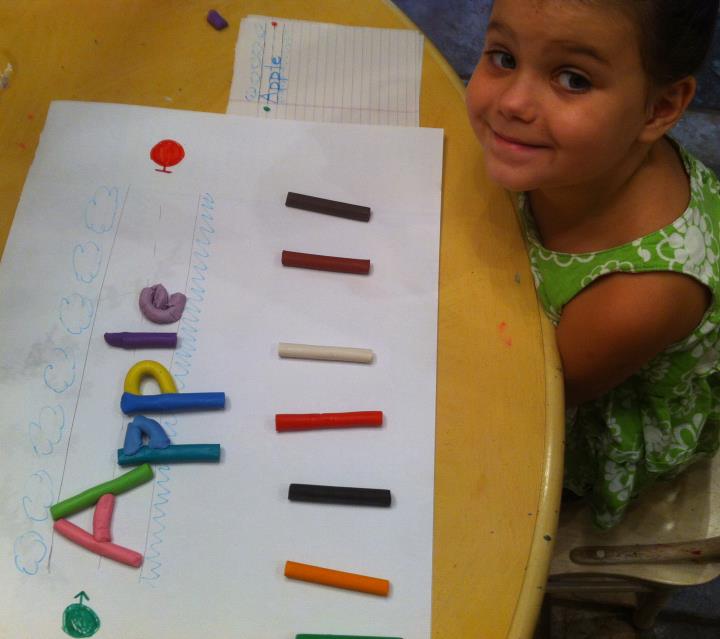
I can complain about all the extra work that comes with a new school year, or I can happily embrace a new beginning.
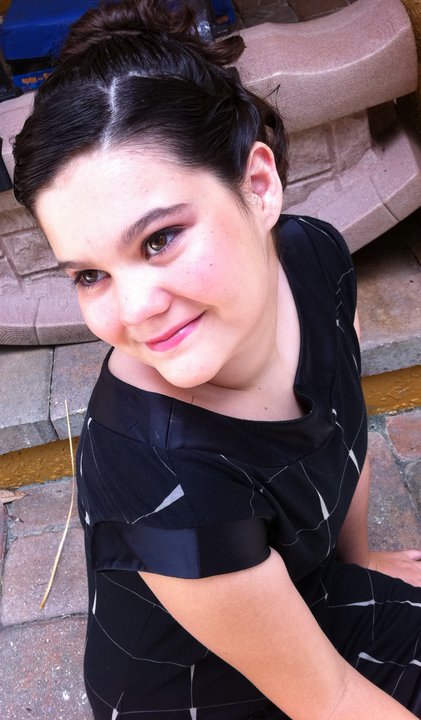
I can waste time longing for my youth, or I can gasp at the youthful beauty of my most precious gifts.
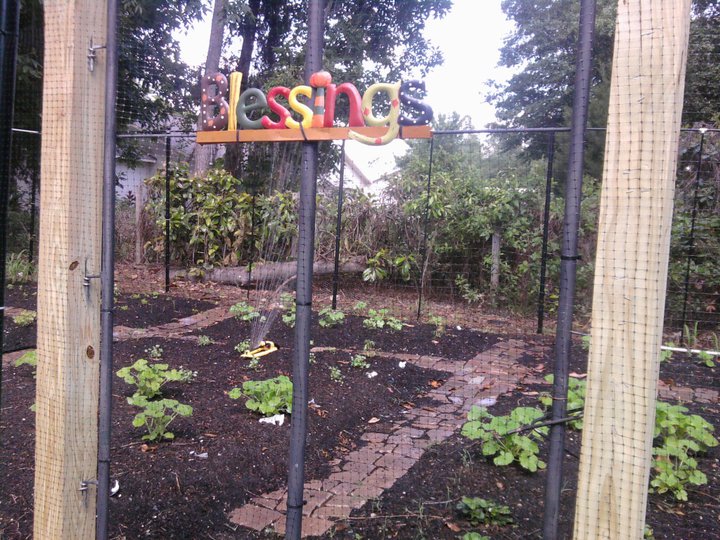
I can wish for riches, or I can revel in richness.

I can worry about the future, or I can trust Who holds the future.
Gratitude bestows reverence, allowing us to encounter everyday epiphanies, those transcendent moments of awe that change forever how we experience life and the world.
John Milton
 Award-winnning author, L.R.Knost, is the founder and director of the children's rights advocacy and family consulting group, Little Hearts/Gentle Parenting Resources, and Editor-in-Chief of Holistic Parenting Magazine. Books by L.R.Knost include Whispers Through Time: Communication Through the Ages and Stages of Childhood ; Two Thousand Kisses a Day: Gentle Parenting Through the Ages and Stages ; The Gentle Parent: Positive, Practical, Effective Discipline ; and Jesus, the Gentle Parent: Gentle Christian Parenting the first four books in the Little Hearts Handbook gentle parenting series, and children’s picture books Petey’s Listening Ears and the soon-to-be-released Grumpykins series.
Award-winnning author, L.R.Knost, is the founder and director of the children's rights advocacy and family consulting group, Little Hearts/Gentle Parenting Resources, and Editor-in-Chief of Holistic Parenting Magazine. Books by L.R.Knost include Whispers Through Time: Communication Through the Ages and Stages of Childhood ; Two Thousand Kisses a Day: Gentle Parenting Through the Ages and Stages ; The Gentle Parent: Positive, Practical, Effective Discipline ; and Jesus, the Gentle Parent: Gentle Christian Parenting the first four books in the Little Hearts Handbook gentle parenting series, and children’s picture books Petey’s Listening Ears and the soon-to-be-released Grumpykins series.
A September to Remember: Unraveling What I’ve Knit Together
Here’s my very last ~A September to Remember~ guest post! I’ll be sharing a wrap-up soon of all the wonderful ‘vintage finds’ shared by these awesome writers. So enjoy this last, but so very not least, post from a very raw and honest Zoie @ TouchstoneZ. (Loss mentioned)
~~~~Unraveling What I’ve Knit Together~~~
I have early memories of feeling wrong within myself. I may have been four years old the first time I can recall believing I was bad. I know I didn’t have the words to identify the feelings, but I had them. I have never felt that I had the right to be alive. My entire life, I have had this little doubt that crept into every experience and tainted it just enough to keep me from holding it fully to my heart-the belief that I was broken somewhere inside.
I found this poem I wrote fifteen years ago:
Since Puck is Taken
If I show you my poetry
You will see inside of me
Core of polluting coal
50 pack lung-seeming soul
Craven, cowering
Rotten bulb flowering
So I will never show
And you will never know
And it dawned on me why the circular thinking of PPD was so appealing to me. It felt like a comfy wool sweater that was well-worn and familiar. I could slip it on like a protection from the elements of my life that felt raw and chafing. I had worn this sweater before. The only time I can recall taking it off was after the birth of my first child. I felt so empowered that nothing could make me un-love myself.
Then I got pregnant for the second time. And that pregnancy ended in a stillbirth. And I pulled my old sweater on without even noticing. I didn’t take it off for the birth of my second son. I zipped it up and added a hood when I got PPD for the first time. Then, the PPD was a bit better and I took off the hood. I mourned the lost time from the PPD haze but wasn’t ready to take it off yet. It wasn’t until after the birth of my third son and PPD returned that I had had enough. I didn’t want to lose more time to this.
I decided that this time, instead of periodically trying to rip off the sweater and throw it away (because that always ended up with me digging frantically in my mental garbage bins to put it back on) I would caress the sweater. Enjoy its fine knit and excellent fit. I made this sweater. I placed each stitch of wool in myself. It is lovingly crafted to protect me and I honor it for what I have made. I honor myself that at least some small part of me has always been able to see the true me and wrap it up in warmth and protection.
For the first time, perhaps in my life, I feel ready to address a lifetime of depression. I can notice it because of the skills I have been working on: sitting with uncomfortable feelings and holding them. Just holding them.
 Grief
Grief
Grief over the loss of my daughter. Grief over the loss of all the parts of myself I never allowed. Grief over the childhood, teenhood, and adulthood that was black with this belief.
Grief
Grief over how things are not the way I want them to be. Grief over the loss of time and closeness with my children and my husband. Grief over not living my life the way I wanted and for not being as loving with myself and others as I want to be.
Grief
I’ve been allowing grief to arise. I’ve been putting my arms around my heart to hold me together because I’m afraid I’ll fly apart if I even look at these feelings. I’ve been noticing them, crying over them, and watching them come and go as I need them to.
And Anger. There’s a lot of anger underneath the grief, and I’m terrified of anger. I don’t know what to do with it. So, I don’t do anything with it. I sit with it. I can always put my sweater back on if it gets too scary. It’s folded up in my lap for whenever I need to hide.
Don’t forget to head over to check out Zoie @ TouchstoneZ!
 Award-winnning author, L.R.Knost, is the founder and director of the children's rights advocacy and family consulting group, Little Hearts/Gentle Parenting Resources, and Editor-in-Chief of Holistic Parenting Magazine. Books by L.R.Knost include Whispers Through Time: Communication Through the Ages and Stages of Childhood ; Two Thousand Kisses a Day: Gentle Parenting Through the Ages and Stages ; The Gentle Parent: Positive, Practical, Effective Discipline ; and Jesus, the Gentle Parent: Gentle Christian Parenting the first four books in the Little Hearts Handbook gentle parenting series, and children’s picture books Petey’s Listening Ears and the soon-to-be-released Grumpykins series.
Award-winnning author, L.R.Knost, is the founder and director of the children's rights advocacy and family consulting group, Little Hearts/Gentle Parenting Resources, and Editor-in-Chief of Holistic Parenting Magazine. Books by L.R.Knost include Whispers Through Time: Communication Through the Ages and Stages of Childhood ; Two Thousand Kisses a Day: Gentle Parenting Through the Ages and Stages ; The Gentle Parent: Positive, Practical, Effective Discipline ; and Jesus, the Gentle Parent: Gentle Christian Parenting the first four books in the Little Hearts Handbook gentle parenting series, and children’s picture books Petey’s Listening Ears and the soon-to-be-released Grumpykins series.
A September to Remember: Embracing Respect
Today’s though-provoking ‘vintage post’ is from Jessica Bowman, author of
To read more awesome insights from Jessica, you can find her over at Bohemian Bowmans!
~Embracing Respect~
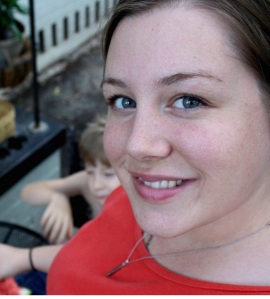 Well, the New Year is around the corner, in case you weren’t aware. And now that the Christmas sugar buzz is wearing off, I suppose most people, like me, are starting to reflect on 2010 and peer curiously towards 2011.
Well, the New Year is around the corner, in case you weren’t aware. And now that the Christmas sugar buzz is wearing off, I suppose most people, like me, are starting to reflect on 2010 and peer curiously towards 2011.
There are some a lot of circumstances in our life that I have no control over. This post is about the other things.
The things I can do.
First of all, I’m not a resolution making person.
I never make New Year’s resolutions. I think the “success” rate of them is abysmal, and I don’t want to be disappointed in myself later for not meeting some silly and entirely too specific goal. Instead, I just enter every new year with the obvious plans of growing wiser that year, becoming a better parent, wife, friend, and follower of Jesus.
However.
This year, I can feel myself funneling my regeneratory New Years powers in a certain direction.
No, it’s not a weight goal. Though it probably should be.
I’m not wanting to climb a mountain.
Or learn to make jewelry.
Or visit Disneyworld.
It’s a Family Mission Statement whittled down to one. single. word.
Respect.
I’ve been thinking a lot about respect the last couple of months. In regards to parenting. In regards to learning.
I began to learn about respect in marriage a few years ago when I read a book about it. I had never thought very much about respect before then. I had never realized the importance of it. The magnitude of it.
But, for some reason, though that book did shift my respect paradigm in relation to my husband, it didn’t leave that little box that I put it in. It never occurred to me that the concept could spill over into seemingly unrelated areas of life, like education.
But in the last quarter of 2010 I began to think a lot more deeply about education. About learning. About parenting.
And the theme I kept coming back to is Respect.
I’ve realized anew this year, that in practice, I don’t respect my children very much. I hold my authority over their head and play my “because I said so” card too often.
I often times feel like I am living out Colossians 3:21.
“Parents, don’t come down too hard on your children or you’ll crush their spirits.”
I’ve been crushing the spirits of my children.
With my impatience. With my harshness. With my disrespect.
So with tears and the simple, unrefined prayer of “help” repeated untold times as I lay in bed at night, I began to grasp a hold of the practice of respect in our day to day.
I’ve increasingly stopped talking to them as if they are children, but instead as if they are grown ups. Or, more accurately, as if they are people.
As if they are people created by God with talents and purpose that I have no right to squash with my annoyance.
So much of what children do that exasperate us are not “sins” at all. They are just people with very little experience at life who need to be led by example.
Our example.
Examples in authority are powerful.
It is ever so hard to step outside of the parenting you were parented with.
Or the marital skills that were modeled for you.
And it is ever so illogical to think that if we are harsh and impatient with our children, they will learn to be respectful and loving of their siblings and friends and future families.
So, I’ve been learning to respect my children. To treat them as people. To listen. To explain things they don’t know yet, as if they were another grown up, instead of as if they are inconveniences and ever disdainful children.
And, lo and behold, the more I’ve treated them with respect, the more they have respected me. And each other.
The more patient I’ve been with them, the more patience they’ve shown each other. The calmer I’ve been with them, the calmer they’ve been with each other. The more attention I’ve shown them, the more attention they’ve shown each other.
I realize this isn’t a complicated concept. And is the second greatest commandment at it’s base.
Treat other people the way you want to be treated.
But sometimes that can feel truly hard to practice and own.
So, that is my purposeful word for my family this year.
And it is already changing us.
Don’t forget to check Jessica out over at Bohemian Bowmans, and take a look at her ebook!
 Award-winnning author, L.R.Knost, is the founder and director of the children's rights advocacy and family consulting group, Little Hearts/Gentle Parenting Resources, and Editor-in-Chief of Holistic Parenting Magazine. Books by L.R.Knost include Whispers Through Time: Communication Through the Ages and Stages of Childhood ; Two Thousand Kisses a Day: Gentle Parenting Through the Ages and Stages ; The Gentle Parent: Positive, Practical, Effective Discipline ; and Jesus, the Gentle Parent: Gentle Christian Parenting the first four books in the Little Hearts Handbook gentle parenting series, and children’s picture books Petey’s Listening Ears and the soon-to-be-released Grumpykins series.
Award-winnning author, L.R.Knost, is the founder and director of the children's rights advocacy and family consulting group, Little Hearts/Gentle Parenting Resources, and Editor-in-Chief of Holistic Parenting Magazine. Books by L.R.Knost include Whispers Through Time: Communication Through the Ages and Stages of Childhood ; Two Thousand Kisses a Day: Gentle Parenting Through the Ages and Stages ; The Gentle Parent: Positive, Practical, Effective Discipline ; and Jesus, the Gentle Parent: Gentle Christian Parenting the first four books in the Little Hearts Handbook gentle parenting series, and children’s picture books Petey’s Listening Ears and the soon-to-be-released Grumpykins series.






 Capri points at the front door every morning and says, “Daddy, go!” Her daddy feels a bit rejected, especially on the weekends when he doesn’t have to go to work and his little girl cries because he won’t leave!
Capri points at the front door every morning and says, “Daddy, go!” Her daddy feels a bit rejected, especially on the weekends when he doesn’t have to go to work and his little girl cries because he won’t leave! 
 There is such a rush these days to get children sleeping through the night, weaned off the breast, eating solid foods, potty trained, reading independently, and on and on, that we seem to have lost the ability to simply enjoy life as it happens and let our children do the same. Gone are the days of making mud-pies and playing in piles of leaves. They’ve been replaced with flashcards, language immersion (even in the womb!), educational dvd’s, and the like. Preschool has become the new kindergarten, with parents rushing to get on waiting lists for the ‘best of the best’ preschools, often even before their first prenatal appointment!
There is such a rush these days to get children sleeping through the night, weaned off the breast, eating solid foods, potty trained, reading independently, and on and on, that we seem to have lost the ability to simply enjoy life as it happens and let our children do the same. Gone are the days of making mud-pies and playing in piles of leaves. They’ve been replaced with flashcards, language immersion (even in the womb!), educational dvd’s, and the like. Preschool has become the new kindergarten, with parents rushing to get on waiting lists for the ‘best of the best’ preschools, often even before their first prenatal appointment!


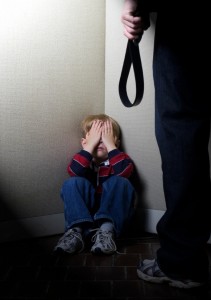 ~Hana Williams: Another child “disciplined” to death~
~Hana Williams: Another child “disciplined” to death~ A few other amazing gentle parenting crusaders:
A few other amazing gentle parenting crusaders:









